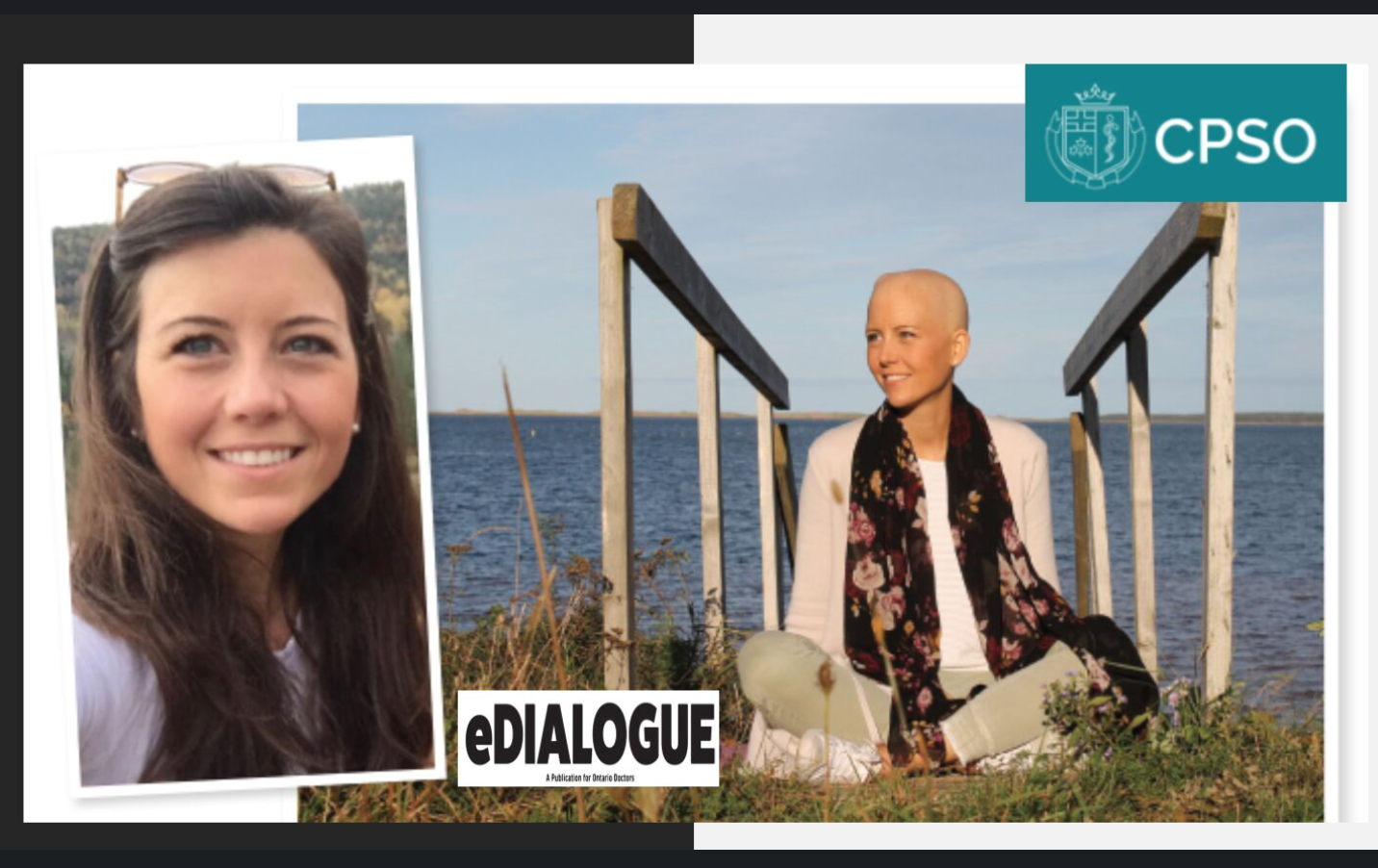To learn more about how Dr. Barbara Tatham used her own illness to teach others about the importance of empathy, please read "White Coat to Blue Gown".
"She laid herself bare for everyone to see just how hard it can be to be a patient, and in doing so, made all of us want to do better.... Barb’s honesty about her poor prognosis was painful to hear but she had clearly confronted her own humanity and mortality in a way that few of us ever will.” Source: e-Dialogue College of Physicians and Surgeons of Ontario
The Need for Access to Timely Support and Education about Palliative Care
As we all encounter serious illnesses, uncertainty, grief, death and bereavement, there is a remarkable opportunity to create compassionate care for individuals and families of all ages, from time of diagnosis, into remission, at end of life and into bereavement.
It is so essential to demystify the incredible breadth and interprofessional scope of a Palliative approach to care in the education of all health science students and healthcare professionals.
It was a wonderful honour to speak with Death By Design Podcast - Kimberly C. Paul about the future of healthcare. As death is not elective, and illness and dying do not discriminate, we all encounter life-limiting illness, dying and grief. So... let's talk about it.
This episode is available via: http://www.deathbydesign.com/podcast/season-2-episode-10-c-elizabeth-dougherty/
Cancer Mythbusters: Is Palliative Care Only for End-of-Life Patients?
"Palliative Care is an often misunderstood specialty, focused on providing support and pain management strategies to cancer patients throughout all stages of their illness. This approach, which can be blended into curative cancer therapy, focuses on care for the whole person: mind, body, and spirit."
Source: Cancer Mythbusters - Is Palliative Care Only for End-of-Life Patients?
10 Things My Chronic Illness Taught My Children
"All three of us work to maintain balance — knowing when we need to flex and when we need to release, when to put pain first and when to let it fade into the moment."
Patients feel psycho-social impact of chemo more acutely than physical side effects
Highlighting the need for integrated Person and Family-Centred Care...
"The results show that there might be a gap between what doctors think is important or disturbing for patients, and what patients really think. Physical, psychological, social and spiritual support is needed at every stage of the disease"
Source: Patients feel psycho-social impact of chemo more acutely than physical side effects. MedicalXpress
Death: A Part of Life. A 5-Part Mini Series (podcast)
Am honoured to have been a guest panelist on the final instalment of Death: A Part of Life - Part 5: The Grieving Process.
This informative 5-Part radio series with the Dr. Bob Kemp Hospice aired on CHML 900. Each week panelists including caregivers and healthcare professionals convened to open up a conversation about dying, death, grief and loss. The series explores issues such as: coping with the diagnosis of a serious illness; demystifying hospice palliative care; exploring available supports and services; advance care planning; the dying process and grieving which ultimately impacts us all.
The links to the podcasts of Death: A Part of Life are listed below:
Death, A Part Of Life - Part 1: Palliative Care.
It’s a fact of life that at one point we all will die. But is it all as simple as that? Bill Kelly and the Bob Kemp hospice will be discussing grief, relief and the acceptance of passing away. On today’s show we discuss what happens when you’re told you don’t have much time left, and whether healthcare is asking too much of caregivers, and whether people are prepared for palliative care.
Death, A Part Of Life - Part 2: Changes To Palliative Care.
For our second show, we will discuss what the palliative care system is now, how it works and what changes need to be made. What does one of our local MPPs hear from his constituents about healthcare and in particular, palliative care? How would changes affect patients? Does fear have a hold on how we make our decisions once we’re diagnosed as palliative? An example of this is whether to choose palliative care or medically assisted death.
Death, A Part Of Life - Part 3: Religion and Palliative Care.
We continue our series this week with two topics. The first one will be discussing the experience of death. Everyone treats death in our world differently. But is it strictly a medical experience or is it a spiritual one? In our second half, we will talk about access to palliative care services in various sectors of our society. How do we help the vulnerable and the community obtain access to proper palliative care?
Death: A Part of Life - Part 4: Bucket lists and preparation.
Life should be celebrated at all stages, whether it be infancy, adulthood and as life comes to a close. So how can we make the most out of life? How can those who are in palliative care achieve their “bucket list” dreams before they pass, and how does it apply when it comes to their own personal circumstances? How do we define a “bucket list”? How wise is it to be prepared for eventual health issues? How should we plan for advanced care and how does it affect the family? How do we navigate through the difficult decisions and pain to provide care for loved ones who are palliative?
Death: A Part of Life - Part 5: The grieving process.
The final instalment in our series sees us discussing grief and how this isn’t just an event that happens in life but a process that families have to go through. How do families grieve the loss of a loved one? How can we support one another and how does grief affect children?
Source: Global News. AM 900 CHML






